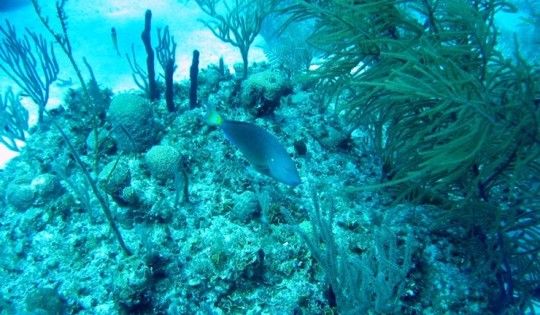More than a mile beneath the ocean’s surface, as dark clouds of mineral-rich water billow from seafloor hot springs called hydrothermal vents, unseen armies of viruses and bacteria wage war.
Like pirates boarding a treasure-laden ship, the viruses infect bacterial cells to get the loot: tiny globules of elemental sulfur stored inside the bacterial cells.
Instead of absconding with their prize, the viruses force the bacteria to burn the valuable sulfur reserves, then use the unleashed energy to replicate, eventually filling the bacterial cells to the bursting point.
However, this new study, published in the journal Science, marks the first observation of that process in ecosystems thriving on the nutrient-rich, scalding hot water of deep ocean vents.
“Viruses play a cardinal role in biogeochemical processes in the ocean’s shallow and mid-to-deeper waters,” says David Garrison, program director in the National Science Foundation’s Division of Ocean Sciences, which funded the research.
“This study suggests that viruses may have a similar importance in deep-sea thermal vent environments.”
Ironically for the bacteria, known as SUP05, the viruses seem to use a version of the bacteria’s own genetic code to hijack the microorganisms. At some time in the evolutionary history of SUP05 and its viral attacker, there may have been an exchange of genes between the two, sugges the study’s authors.
“We suggest that the viruses serve as a reservoir of genetic diversity that helps shape bacterial evolution,” says study co-author University of Michigan marine microbiologist Gregory J Dick.
“There seems to have been an exchange of genes, which implicates the viruses as an agent of evolution. That’s interesting from an evolutionary biology standpoint.”
Agencies/Canadajournal

 Canada Journal – News of the World Articles and videos to bring you the biggest Canadian news stories from across the country every day
Canada Journal – News of the World Articles and videos to bring you the biggest Canadian news stories from across the country every day

